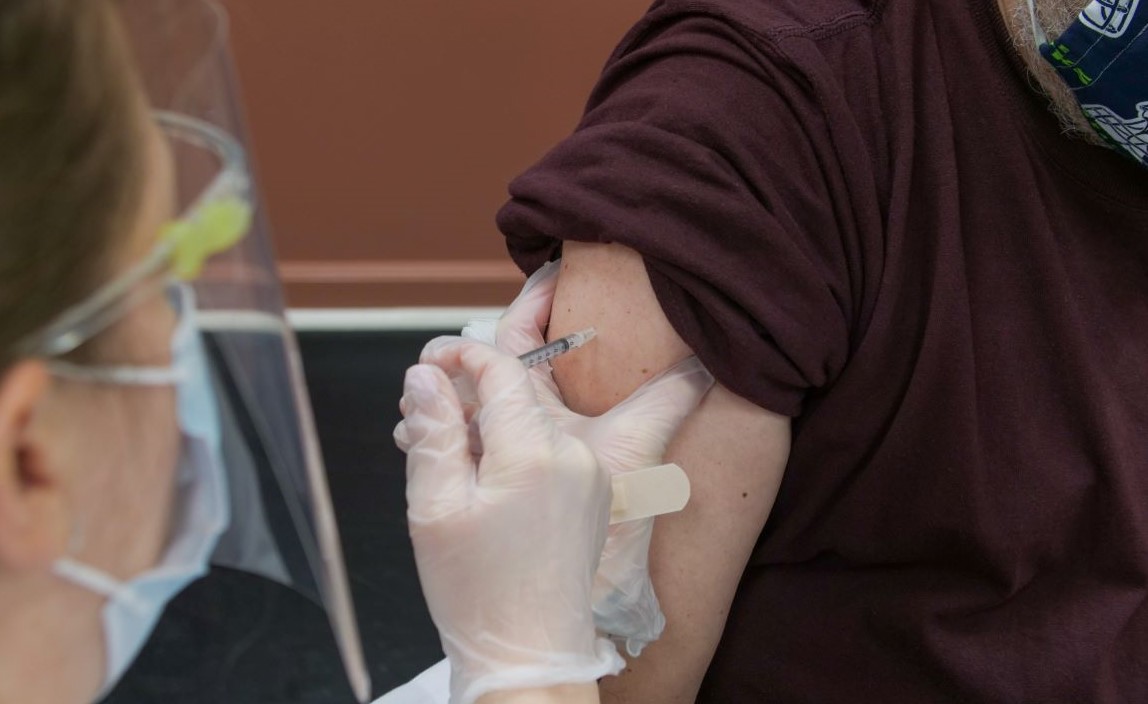Conspiracy theories and low levels of faith in institutions have affected the citizen’s trust in vaccination against coronavirus.

Imer Mushkolaj
My mother remembers the time when an epidemic of smallpox burst out in Kosovo – namely the epidemic of the variola vera virus. It was the last epidemic of this virus in Europe. On March 13, 1972, the doctor Xhelal Xhibo diagnosed a girl from Orahovac with this virus. Two months later, when the battle against this epidemic ended, the statistics showed that 175 people in Yugoslavia were infected, out of which 35 died. Back then, the state had organized the vaccination of 18 million of citizens. Epidemiologists from that time say that the epidemic burst out because of the resistance of citizens to get vaccinated.
Precisely 48 years later, on March 13, 2020, the first cases of Covid-19 were identified in Kosovo. Until now, the number of the infected is near 60 thousands, while the number of the death cases is reaching near 1500. The vaccination has not started yet, while the skepticism of citizens for vaccination continues. Conspiracy theories do not end, while institutions say they are doing their best efforts to assure the necessary vaccines.
According to a research conducted by The Balkans in Europe Policy Advisory Group (BiEPAG) during the last month, approximately 50 percent of the surveyed citizens from Western Balkan countries declared that they do not want to get vaccinated against coronavirus. In Kosovo this percentage reaches 56%, and only 37% are ready to get vaccinated. But what has influenced these numbers?
Of course, the influence of conspiracy theories is big. But, the low levels of faith in institutions also has a big influence. According to a study by Kosovar Centre for Security Studies, published in November last year, only 4% of the citizens trusted the Government of Kosovo, while 52% of surveyed citizens had absolutely no trust in this institution.
* * *
Until now, my mother that is in her 70s, has escaped infection. She got vaccinated against seasonal flu and keeps asking when the vaccines against coronavirus will arrive. But, the politics seems to not be preoccupied with the vaccines, as it is preoccupied with the election campaigns for the elections of 14 February.
It is difficult to gain the trust of the citizens about the necessary vaccination, when the politicians themselves do not respect the safety measures for protection from Covid-19. It is difficult to believe the statements about vaccination, when the Minister of Health himself gathers many people for the election campaign, without paying attention to the measures for protection that he himself has decided about them.
Institutions and media should focus on the importance that vaccination has, of course, without anathematizing those that are against the vaccination.
Meanwhile in 1972 the epidemic of variola vera burst out because of the resistance to get vaccinated, the resistance against taking the Covid-19 vaccine is a sort of a crime. This way people will continue to die, and the economy will get destroyed. Therefore, vaccination is a necessity – vaccination is emancipation.
Imer Mushkolaj, The author is a journalist for 25 years. He has worked in different media and managed many of them. He was a lecturer of journalism and communication with the audience. He is an activist of the civil society, columnist and political analyst.



Leave A Comment